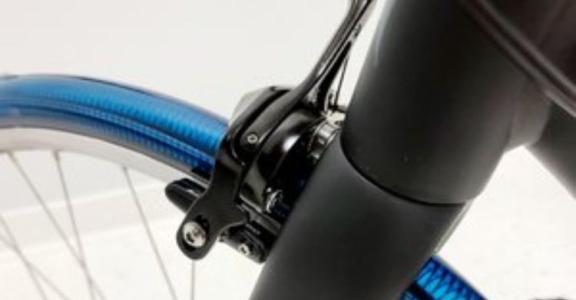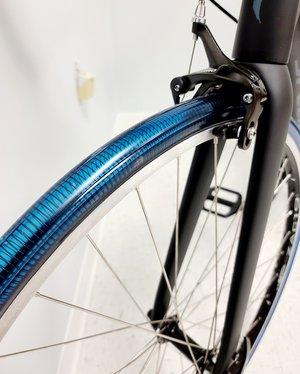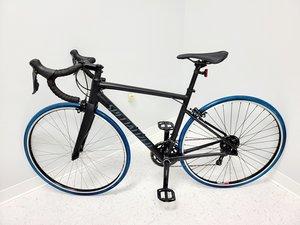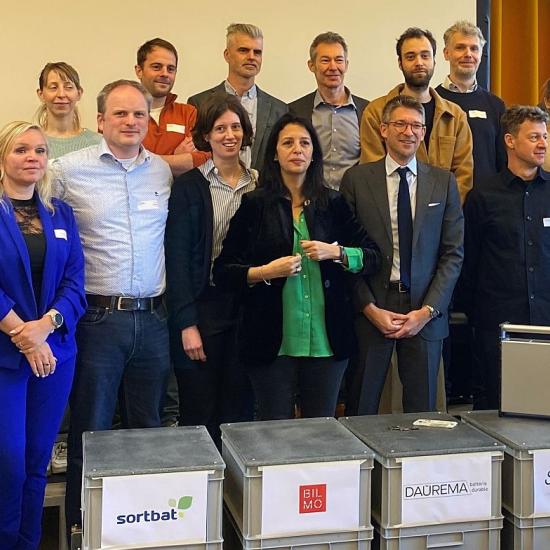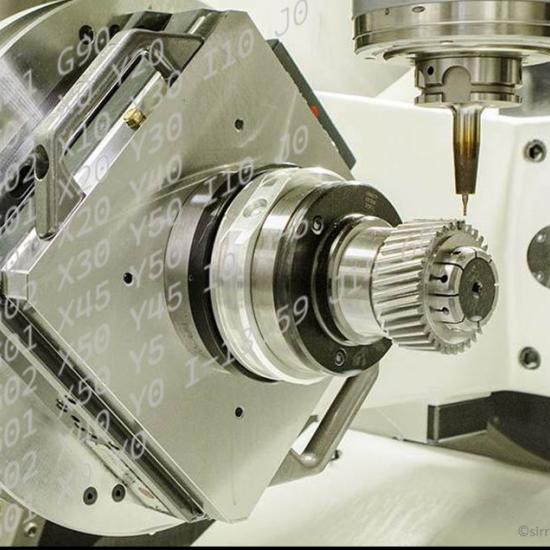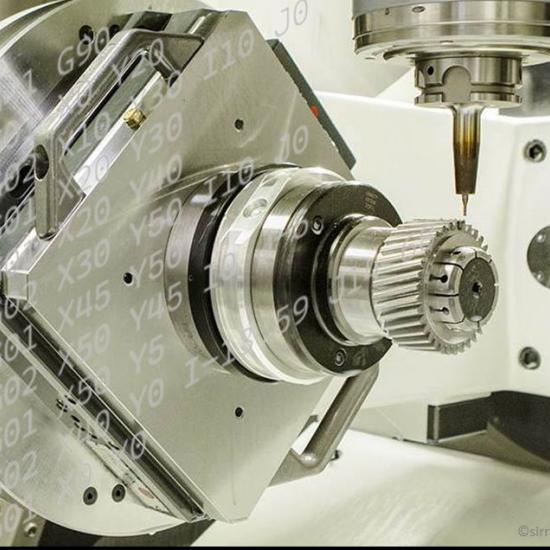Based on a shape memory material, the SMART Tire Company developed a bicycle tyre that doesn’t go flat. The technology was originally developed and tested by NASA for future Mars Rover missions.
The tyre is made with 'Shape Memory Alloy Radical Technology', a super-elastic shape memory alloy called NiTinol+. Unlike conventional elastic material which stretches, shape memory metal rearranges its molecular structure when it bends, but immediately regains its original shape. The tyre which is eventually produced will be integrated with a special poly-rubber material, for the longest-lasting tread and grip, for all weather conditions
The tyres have several advantages over traditional rubber pneumatic tyres, offering a high-quality alternative;
- They are airless, light and elastic like rubber but strong like titanium, never go flat and cannot be punctured.
- Only one set of tyres for a bicycle (or other vehicle) is needed, as the tyre would last as long as the bicycle itself, and does not puncture or tear. The rubber tread only needs to be replaced when it becomes worn. The original structure of the tyre is maintained throughout the life of the bicycle or vehicle.
- Like pneumatic tyres, the tyres feel comfortable, with superior handling and durability. For all kinds of bike types, the tyre can increase traction and safety.
Source : SMART Tire Company
How shape memory material works
Originally, NASA developed this revolutionary new technology for the tyre industry. These shape memory alloys are capable of undergoing phase transitions at the molecular level with significant reversible strain (up to 10%), an order of magnitude more than ordinary materials, before undergoing permanent deformation. Commonly used elastic-plastic materials (e.g. spring steels, composites, etc.) can only be subjected to strains on the order of ~0.3-0.5% before suffering plastic deformation. Hence, the use of a NiTi shape memory alloy produces a superelastic tyre that is elastic like rubber, yet strong like titanium.
The utilization of shape memory alloys provides enhanced control over the effective stiffness as a function of the deformation, providing increased design versatility. For instance, the tyre can be made to soften with increased deflection, reducing the amount of energy transferred to the vehicle during high deformation events. In addition, the use of shape memory alloys in the form of radial stiffeners, as opposed to springs, provides even more load carrying potential and improved design flexibility.
IP and status
NASA protected the technology with patents and then made it available for licensing. In 2020, The SMART Tire Company founders Brian Yennie and Earl Cole won a NASA Startup Studio programme and took a semi-exclusive licence to NASA patent WO2022/056098 ('Shape memory alloy (SMA) tubular structure'). On patents US 10,449,804 ('Superelastic tyre') and US 10,427461 ('Radially stiffened shape memory alloy tyre'), NASA granted a non-exclusive licence. The SMART Tire Company further strengthened its IP position by registering the brand names 'METL', 'SMART' and 'reimagining the Wheel' and new models for the tyres.
The first bicycle tyres would be available for commercial use this year (with premium price, similar to a high-performance tyre or racing tyre, in the USD 100-150 size range). In addition, the Smart Tire Company, together with Hyundai/Kia, is also testing the technology for electric cars.
